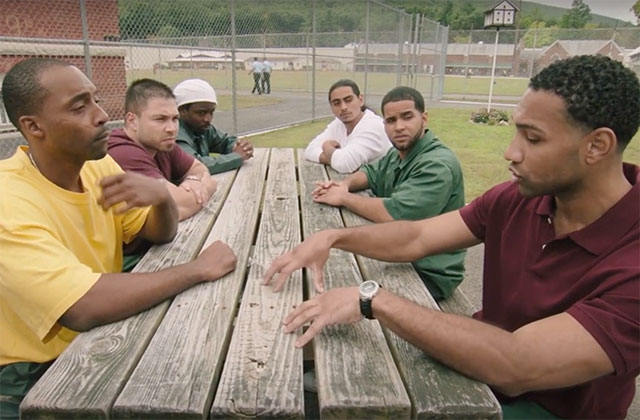Earlier this month, the debate team of the Bard Prison Initiative (BPI)—made up of incarcerated college students—beat Duke University’s debate team in a unanimous decision. That win was on the heels of defeating Harvard’s team in 2015. Now, BPI is the focus of a new PBS documentary, “College Behind Bars,” which airs November 25 and 26.
Directed by Lynn Novick and executive produced by Ken Burns, the four-part film highlights the nation’s broken criminal justice system and follows a dozen incarcerated people and their families over four years as they struggle to earn college degrees. Distilled from nearly 400 hours of footage, it includes deeply personal interviews about their pasts, their challenges and their worries about what life will be like after incarceration.
“‘College Behind Bars’ puts a human face on the millions of Americans whose lives are erased from public view when they enter prison and raises questions about whether our criminal justice system is doing enough to prepare incarcerated men and women to re-enter society and become productive citizens, especially in a country that believes in second chances,” producer Sarah Botstein said in an emailed statement.
Of the 51,000 men and 2,400 women incarcerated in New York State, just 950 have access to higher education and 300 are trying to earn college degrees, noted the documentary. “I’ve been incarcerated for 13 years. And from my experience I can tell you, prison is here to punish us. It’s here to warehouse us. But it's not about rehabilitating. It’s not about creating productive beings.”
The film illustrates the rigor of the program, which is run by a college that holds classes within prisons, rather than a prison system-led program. The first part introduces viewers to Dyjuan Tatro, who explained that school is his buffer against prison life; Giovannie Hernandez, who studies at 11 at night when the noise on his block quiets; and Julie Hall, class of 2011, who majored in German studies, and now reads about American news in German. “One of the things that really attracted me about Germany was its historical mistake and then the manner in which it tried to really make up for that mistake,” Hall said.
Allowing space for course correction and true rehabilitation through education is the driving narrative. “BPI is a very simple kind of experiment, which is what happens when we provide the kinds of education that typically, in the United States, are only afforded to the children of the lucky—or to the entitled, or the rich—to others,” said Max Kenner, BPI’s founder and executive director.
Watch a preview of the film below courtesy of PBS and tune in on Monday (November 25).
